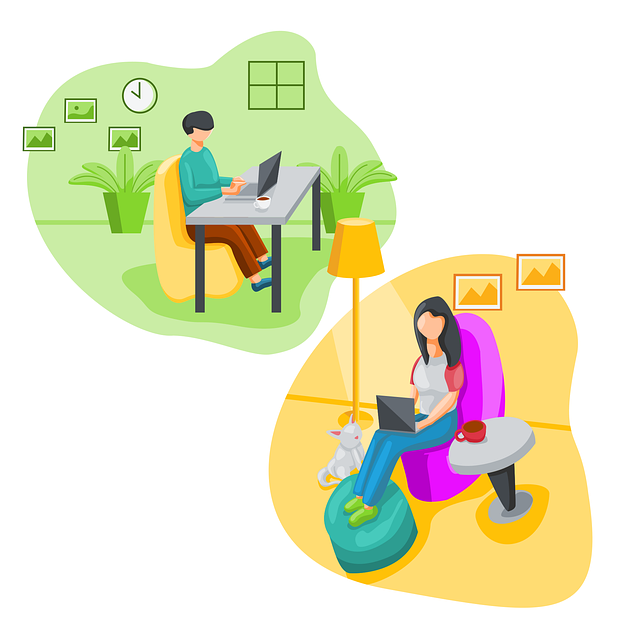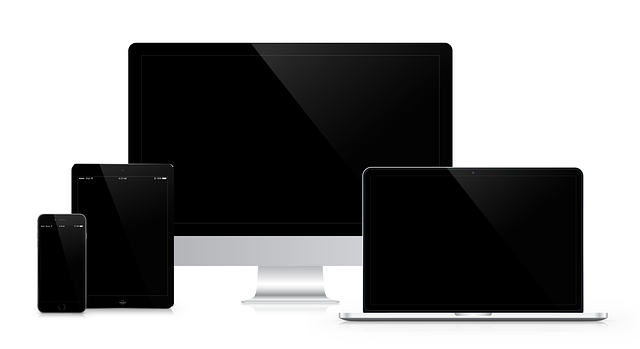The shift to remote work for CPAs and bookkeepers, accelerated by global events, presents both advantages and IT challenges. Key priorities include securing access to accounting software, client data protection, and efficient collaboration tools. Cloud-based accounting software enables seamless collaboration and robust security measures for sensitive financial data. Secure communication through video conferencing, file-sharing platforms, and cloud storage ensures efficient operations. Implementing VPNs, regular backups, strong password policies, and multi-factor authentication safeguards against data breaches. Choosing a managed service provider (MSP) with tailored solutions, 24/7 support, and advanced cybersecurity protocols streamlines processes and enhances security for CPA work-from-home IT environments.
In today’s digital era, CPAs and bookkeepers are increasingly working remotely. This shift presents unique IT challenges, from secure communication to data backup and cybersecurity. This article explores tailored solutions for remote IT support specific to CPA work-from-home setups. We delve into cloud-based accounting software, essential collaboration tools, efficient data management, robust cybersecurity practices, and the critical role of managed service providers in streamlining operations.
- Understanding the Unique IT Challenges for CPAs and Bookkeepers Working Remotely
- The Benefits of Cloud-Based Accounting Software for Remote Teams
- Essential Tools for Secure Remote Communication and Collaboration
- Implementing Efficient Remote Data Backup and Recovery Solutions
- Cybersecurity Best Practices to Protect Sensitive Financial Information
- Streamlining Remote IT Support: Choosing the Right Managed Service Provider
Understanding the Unique IT Challenges for CPAs and Bookkeepers Working Remotely

Many CPAs and bookkeepers have transitioned to working remotely, particularly following recent global events. While this shift offers numerous benefits, it also presents unique IT challenges. These professionals often juggle complex accounting software, sensitive client data, and various collaboration tools, all while working outside traditional office settings.
Remote user onboarding becomes critical for ensuring new hires can access necessary resources securely. An offsite tech desk is invaluable in providing immediate technical support to remote workers. Additionally, security for WFH CPAs is paramount; protecting financial data from cyber threats requires robust, up-to-date security measures tailored to the unique needs of this workforce.
The Benefits of Cloud-Based Accounting Software for Remote Teams

Cloud-based accounting software has revolutionized the way CPAs and bookkeepers manage their finances, especially with the rise of remote work. For those engaged in CPA work-from-home, this technology offers numerous advantages. Firstly, it enables seamless collaboration and real-time data sharing among team members scattered across different locations. This ensures that everyone is on the same page regarding financial records and facilitates efficient remote teamwork.
Additionally, cloud software provides robust security measures for sensitive financial information, addressing critical concerns around telework tech support and security for WFH CPAs. With encrypted data storage and secure access protocols, including VPN troubleshooting capabilities, CPAs can rest assured that their work-from-home setup is protected from potential cyber threats. This level of security is paramount in maintaining the integrity of financial records and upholding professional standards.
Essential Tools for Secure Remote Communication and Collaboration

For CPAs and bookkeepers working from home, secure remote communication is paramount to ensure seamless collaboration with clients and teams. Essential tools for remote IT support in this sector include robust video conferencing software, enabling real-time virtual meetings and face-to-face interactions despite physical distances. These platforms facilitate efficient discussions, presentations, and client consultations, mirroring the dynamics of in-person interactions.
Additionally, secure file-sharing platforms and cloud storage solutions are indispensable for remote access to financial documents and audit trails. These tools allow CPAs to grant clients and team members controlled, remote audit access and remote file access, ensuring important data remains accessible while maintaining stringent security protocols. Efficient remote user onboarding processes, tailored to the unique needs of CPA work-from-home IT environments, further streamline operations by facilitating quick access to necessary files and systems for new team members.
Implementing Efficient Remote Data Backup and Recovery Solutions

In today’s digital age, where many CPAs and bookkeepers opt for remote work-from-home IT setups, ensuring secure and efficient data management is paramount. Implementing robust remote data backup and recovery solutions can protect sensitive financial information and ensure business continuity. Cloud-based storage services offer a reliable method to safeguard data, allowing access from anywhere with an internet connection. This enables CPAs to remotely connect, update, and retrieve essential files using secure cloud login credentials.
By utilizing virtual private network (VPN) troubleshooting techniques, WFH CPAs can maintain the highest level of security while accessing their data. VPNs encrypt connections, ensuring that financial records transmitted over public networks remain confidential. Regular backups, combined with a well-configured VPN and cloud login access, provide peace of mind, knowing that their business critical data is secure and easily recoverable if needed.
Cybersecurity Best Practices to Protect Sensitive Financial Information

As CPAs and bookkeepers increasingly adopt remote work models due to flexibility and cost savings, securing sensitive financial information becomes paramount. Cybersecurity best practices are essential to protect against data breaches and ensure business continuity. Implementing robust password policies, enabling multi-factor authentication (MFA) for cloud login CPA accounts, and regularly updating software and antivirus programs are fundamental steps.
Remote user onboarding processes should incorporate security measures from the outset. Providing CPAs with access to mobile work tools equipped with end-to-end encryption ensures that communications and data exchanges remain confidential. Additionally, encouraging employees to use secure networks and VPNs while working remotely can mitigate risks associated with public Wi-Fi connections. Regular cybersecurity awareness training is crucial to educate staff about potential threats like phishing attempts and social engineering tactics, fostering a culture of security consciousness among remote CPA work-from-home IT users.
Streamlining Remote IT Support: Choosing the Right Managed Service Provider

When it comes to remote IT support for CPAs and bookkeepers working from home, streamlining processes is key. Choosing the right managed service provider (MSP) can significantly enhance productivity and mitigate potential issues. Look for a provider that offers comprehensive solutions tailored for the unique challenges of CPA work-from-home setups. This includes seamless VPN troubleshooting, secure remote file access for CPAs, and robust security measures to protect sensitive financial data during remote work.
An ideal MSP should provide 24/7 support, ensuring quick resolution times for any tech hiccups that may arise. They should also implement advanced cybersecurity protocols to safeguard against threats specific to working from home environments. By selecting a reputable managed service provider with these features, CPAs can focus on their core financial tasks while enjoying the convenience and security of high-quality remote IT support.
